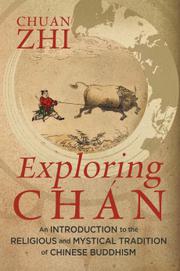

EXPLORING CHÁN
An Introduction to the Religious and Mystical Tradition of Chinese Buddhism
by Chuan Zhi
A sweeping history of Chinese Buddhism that includes personal reflections on meditation and practical instruction for beginners.
The historical development of the Buddhist faith is obscure, partly because the intensely personal experience of meditative practice itself resists scholarly documentation. Nevertheless, with extraordinary rigor and erudition, debut author Zhi reconstructs both the emergence of Buddhism in general and of Chinese (or Chan) Buddhism in particular. By the time Buddhism arrived in China, it had already evolved in India from Vedism, Brahmanism, Jainism, and Hinduism. Then, as early as the second century B.C.E., it was again refashioned by the political, sociological, and religious influences of its time—in this case, Confucianism and Taoism. The author discusses the original forms of Buddhism practiced in India and its metamorphosis when it traveled all over Asia. The author specifically focuses on the ways in which, in China as elsewhere, Chan Buddhism split into strains that were either more meditatively spiritual or institutional. After he impressively concludes this “broad picture of Chan Buddhism,” he turns his attention to its practice and furnishes a thorough introduction for the novice, including an accessible discussion of the benefits of maintaining a meditative practice and “Hindrances” that could undermine it. Zhi is a fully ordained Buddhist monk, and his knowledge of the subject matter is astonishing; he not only demonstrates an academic mastery of Buddhism as a historical phenomenon, but also a philosophically profound understanding of its spiritual core—which, contrary to many Western misconceptions, is not enlightenment: “Enlightenment is best viewed as a consequence rather than an objective of spiritual labor,” Zhi notes. “The purpose of spiritual life is to unravel mysteries and transcend suffering. It’s a fluid, evolving process.” The author permits himself some gratuitous digression—there’s an entire chapter devoted to explaining Carl Jung’s theory of psychological archetypes, for instance. Still, this is a remarkable study that’s intellectually stimulating, historically edifying, and spiritually instructive.
A lucid and insightful introduction to Buddhism.